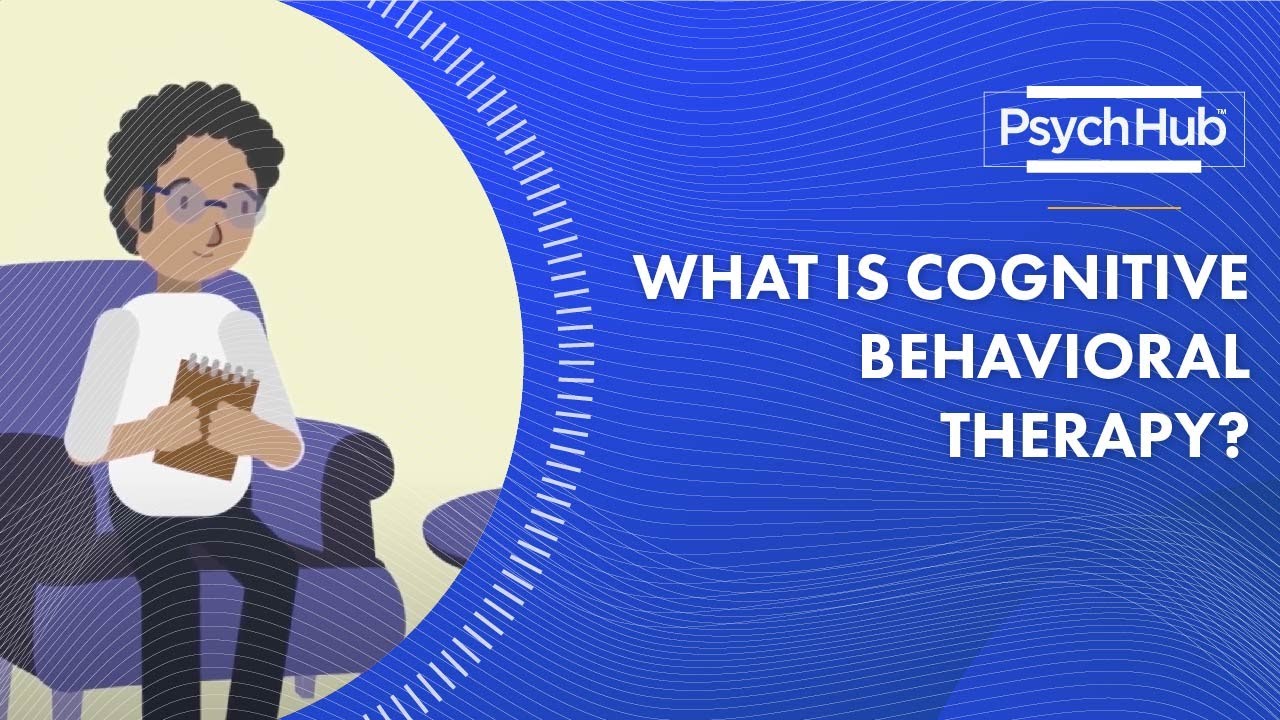Understanding The Benefits Of Mental Health Therapy - Coping Strategies And Symptom Management
Understanding the benefits of mental health therapy can help individuals make informed decisions about seeking treatment and improving their mental health. Mental health therapy is a crucial aspect of overall health and well-being. It involves seeking professional help from trained therapists to manage and treat various mental health conditions, such as anxiety, depression, stress, and trauma.
Author:Karan EmeryReviewer:Daniel JamesMar 13, 20231K Shares353.9K Views

Understanding the benefits of mental health therapycan help individuals make informed decisions about seeking treatment and improving their mental health.
Mental health therapy is a crucial aspect of overall health and well-being. It involves seeking professional help from trained therapists to manage and treat various mental health conditions, such as anxiety, depression, stress, and trauma.
What Are The Benefits Of Therapy?
Therapy, also known as counseling or psychotherapy, is a type of treatment that helps individuals work through emotional, psychological, and behavioral issues. It involves talking to a trained mental health professional in a safe and supportive environment to explore one's thoughts, feelings, and behaviors.
Therapy has numerous benefits for individuals struggling with mental health conditions or life stressors. In this article, we will discuss some of the benefits of therapy.
Gained Self-Awareness
Therapy can help individuals gain insight into their emotions, thoughts, and behaviors. By exploring their internal experiences and identifying patterns, individuals can develop a better understanding of themselves, which can lead to personal growth and increased self-awareness.
Better Mental Health
Therapy can be an effective treatment for various mental health conditions, such as depression, anxiety, post-traumatic stress disorder (PTSD), and substance abuse disorders. A therapist can help individuals manage their symptoms, develop coping strategies, and improve their overall mental health.
Enhance Relationships
Therapy can improve communication skills, increase empathy, and enhance relationship satisfaction. By exploring patterns of behavior and communication, individuals can learn how to better express themselves and understand others, which can lead to healthier and more fulfilling relationships.
Manage Stress
Therapy can help individuals develop coping strategies to manage stress and reduce the negative impact of stress on their mental and physical health. Techniques such as mindfulness, relaxation, and cognitive-behavioral therapy (CBT) can help individuals develop a more positive outlook on life and reduce stress levels.
Gained Physical Health
Mental and physical health are closely linked, and therapy can help improve both. By reducing stress, improving sleep, and developing healthy coping strategies, individuals can improve their physical health and reduce the risk of various health conditions, such as cardiovascular disease and obesity.
Gained Resilience
Therapy can help individuals develop resilience, which is the ability to adapt to and bounce back from life's challenges. By developing coping strategies and increasing self-awareness, individuals can develop a more positive outlook on life and better handle difficult situations.
Surprising Benefits Of Therapy
Therapy, also known as counseling or psychotherapy, is a type of treatment that is often associated with helping individuals manage and treat mental health conditions such as depression, anxiety, and post-traumatic stress disorder (PTSD). However, therapy has many surprising benefits beyond just treating mental health conditions. In this article, we will explore some of the surprising benefits of therapy.
Increased Creativity
Therapy can help individuals tap into their creativity by encouraging them to explore their thoughts and emotions. By gaining a deeper understanding of themselves, individuals can access their creative potential and use it to solve problems and express themselves.
Improved Decision-Making
Therapy can help individuals make better decisions by helping them identify their values and priorities. Through therapy, individuals can explore their options and consider the consequences of their actions, which can lead to more informed and effective decision-making.
Enhanced Performance
Therapy can help individuals improve their performance in various areas of their lives, such as work or sports. By reducing stress and anxiety, improving focus and motivation, and developing coping strategies, individuals can achieve greater success and satisfaction in their endeavors.
Increased Happiness
Therapy can help individuals increase their overall sense of happiness and fulfillment by improving their mental and emotional well-being. By exploring their thoughts and feelings, developing healthy coping strategies, and improving relationships, individuals can lead more satisfying and fulfilling lives.
Improved Physical Health
Therapy can have positive effects on physical health by reducing stress levels and improving overall well-being. By addressing underlying mental health issues and developing healthy coping strategies, individuals can reduce the risk of physical health problems such as heart disease and obesity.
Enhanced Spirituality
Therapy can help individuals connect with their spirituality by exploring their values, beliefs, and sense of purpose. By gaining a deeper understanding of themselves and their place in the world, individuals can find greater meaning and purpose in their lives.
Understanding The Benefits Of Mental Health Therapy - Therapy Statistics
Therapy, also known as counseling or psychotherapy, has numerous benefits for individuals struggling with mental health conditions or life stressors. Research studies have shown that therapy can be an effective treatment for various mental health conditions such as depression, anxiety, and post-traumatic stress disorder (PTSD). In this article, we will discuss some statistics that highlight the benefits of therapy.
Improved Mental Health
According to a study by the American Psychological Association (APA), psychotherapy is effective in reducing symptoms of mental health conditions such as depression, anxiety, and PTSD. The study found that individuals who received psychotherapy showed significant improvement in their mental health compared to those who did not receive therapy.
Increased Self-Awareness
A study published in the Journal of Counseling Psychology found that therapy can increase self-awareness and self-reflection. The study found that individuals who received therapy had a better understanding of their emotions and behaviors, which led to increased self-awareness.
Better Relationships
A study published in the Journal of Marital and Family Therapy found that therapy can improve relationship satisfaction and communication. The study found that couples who received therapy had higher levels of relationship satisfaction and communication compared to those who did not receive therapy.
Reduced Stress
A study published in the Journal of Consulting and Clinical Psychology found that therapy can help reduce stress levels. The study found that individuals who received therapy had lower levels of stress compared to those who did not receive therapy.
Health Improvements
A study published in the Journal of Psychiatric Research found that therapy can have positive effects on physical health. The study found that individuals who received therapy had reduced symptoms of physical health problems such as chronic pain and hypertension.
Increased Resilience
A study published in the Journal of Positive Psychology found that therapy can increase resilience, which is the ability to adapt to and bounce back from life's challenges. The study found that individuals who received therapy had higher levels of resilience compared to those who did not receive therapy.
Long-Term Benefits Of Therapy
Therapy, also known as counseling or psychotherapy, has numerous benefits that can extend beyond the short-term treatment of mental health conditions. While therapy can provide immediate relief for symptoms such as anxiety or depression, it can also have long-term benefits that can help individuals lead more fulfilling and satisfying lives. In this article, we will discuss some of the long-term benefits of therapy.
Improved Self Awareness
Therapy can help individuals gain a deeper understanding of themselves, including their thoughts, emotions, and behaviors. Through therapy, individuals can develop insight into their patterns of behavior and learn how to make changes that can lead to a more fulfilling life.
Improved Relationships
Therapy can help individuals improve their relationships by developing better communication skills, setting healthy boundaries, and gaining a deeper understanding of themselves and others. These skills can help individuals form and maintain healthy relationships throughout their lives.
Better Coping Skills
Therapy can help individuals develop effective coping skills that can be applied in a variety of situations throughout their lives. By learning healthy ways to cope with stress and difficult emotions, individuals can increase their resilience and improve their overall mental health.
Increased Self Esteem
Therapy can help individuals develop a more positive self-image and increase their self-esteem. Through therapy, individuals can learn to identify and challenge negative self-talk, develop a more realistic and positive view of themselves, and learn to accept and value themselves as they are.
Physical Health Improved
Therapy can have positive effects on physical health by reducing stress levels and improving overall well-being. By addressing underlying mental health issues and developing healthy coping strategies, individuals can reduce the risk of physical health problems such as heart disease and obesity.

What is Cognitive Behavioral Therapy?
Increased Happiness And Life Satisfaction
Therapy can help individuals increase their overall sense of happiness and fulfillment by improving their mental and emotional well-being. By exploring their thoughts and feelings, developing healthy coping strategies, and improving relationships, individuals can lead more satisfying and fulfilling lives.
People Also Ask
What Is Therapy And How Does It Work?
Therapy is a type of treatment that involves talking to a trained mental health professional. It can help individuals improve their mental health by addressing underlying issues and developing healthy coping strategies.
How Long Does Therapy Take To Work?
The length of therapy can vary depending on individual needs and the nature of the issue being addressed. Some individuals may see improvements in a few sessions, while others may need longer-term treatment.
What Are The Different Types Of Therapy?
There are many different types of therapy, including cognitive-behavioral therapy, psychodynamic therapy, and interpersonal therapy. Each type of therapy has its unique approach and can be effective for different types of mental health issues.
Is Therapy Covered By Insurance?
Many insurance plans provide coverage for therapy. However, the extent of coverage and out-of-pocket costs can vary depending on the specific insurance plan.
Can Therapy Help With Anxiety?
Therapy can be an effective treatment for anxiety. Cognitive-behavioral therapy, in particular, is effective in reducing symptoms of anxiety by helping individuals identify and challenge negative thought patterns.
Conclusion
I hope that you have understood understanding the benefits of mental health therapy. Mental health therapy offers numerous benefits for individuals struggling with various mental health conditions.
By seeking professional help, individuals can learn coping strategies, manage their symptoms, improve their relationships, and enhance their overall quality of life.
It is essential to prioritize mental health and seek appropriate treatment when necessary to achieve optimal health and well-being.

Karan Emery
Author
Karan Emery, an accomplished researcher and leader in health sciences, biotechnology, and pharmaceuticals, brings over two decades of experience to the table. Holding a Ph.D. in Pharmaceutical Sciences from Stanford University, Karan's credentials underscore her authority in the field.
With a track record of groundbreaking research and numerous peer-reviewed publications in prestigious journals, Karan's expertise is widely recognized in the scientific community.
Her writing style is characterized by its clarity and meticulous attention to detail, making complex scientific concepts accessible to a broad audience. Apart from her professional endeavors, Karan enjoys cooking, learning about different cultures and languages, watching documentaries, and visiting historical landmarks.
Committed to advancing knowledge and improving health outcomes, Karan Emery continues to make significant contributions to the fields of health, biotechnology, and pharmaceuticals.

Daniel James
Reviewer
Daniel James is a distinguished gerontologist, author, and professional coach known for his expertise in health and aging.
With degrees from Georgia Tech and UCLA, including a diploma in gerontology from the University of Boston, Daniel brings over 15 years of experience to his work.
His credentials also include a Professional Coaching Certification, enhancing his credibility in personal development and well-being.
In his free time, Daniel is an avid runner and tennis player, passionate about fitness, wellness, and staying active.
His commitment to improving lives through health education and coaching reflects his passion and dedication in both professional and personal endeavors.
Latest Articles
Popular Articles
